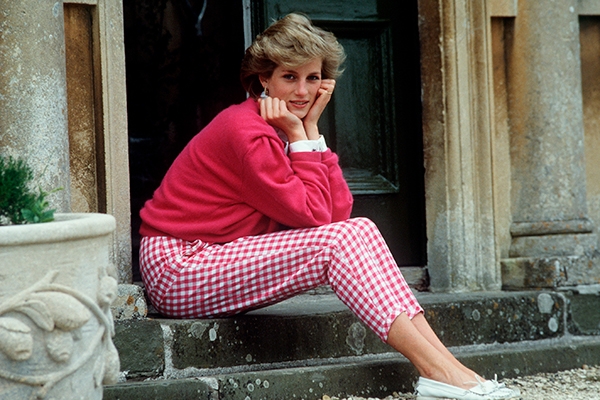As time passes, there is — blessedly — ever less need to pay attention to ‘untold’ stories about Diana, Princess of Wales; but the Channel 4 documentary Diana: The Truth behind the Interview did make me sit up a bit. It revealed, and the BBC does not deny, that Martin Bashir and Panorama colleagues caused fake invoices to be created purporting to show that a rogue employee of Charles Spencer, the Princess’s brother, had sold stories about her to newspapers. It seems this forgery — and Panorama’s assurances about Bashir’s good character — persuaded Lord Spencer to meet Bashir and to urge his sister to do the same. The result was the world-famous 1995 interview (‘There were three of us in this marriage’) which tried to undermine Prince Charles’s succession to the throne. The Queen immediately wrote to both parties requesting they settle their divorce fast. Lord Spencer was not interviewed in the Channel 4 programme — he gets so many such requests that he usually turns them down — but I thought I would ring him up to get his account. Since the matter is with the BBC, he is not making a public statement yet. But I learnt that Spencer — who is unaristocratically meticulous — kept full notes of his discussions with Bashir, including of the meeting, which he attended, between Bashir and Diana. He noticed in this meeting huge discrepancies between what Bashir had previously said to him and what the interviewer was now telling her. He felt the fantastical stories Bashir repeated about threats to her life and other matters were exploiting her vulnerability. He therefore urged her, after Bashir had left, not to agree to the interview. She decided otherwise. Lord Spencer has now given a dossier of what happened to Tim Davie, the BBC director-general. I wonder what he will do with it. No doubt there are other sides to this story, but it does look as if the public-service BBC used methods which would not have disgraced the now defunct News of the World, and then covered them up.
Barbara Amiel’s memoir, published this month, is called Friends and Enemies (Constable), but it could equally well be called Black Lives Matter. It defiantly vindicates the rightness of Conrad and Barbara Black against the detractors who fell upon them when Conrad lost control of his company Hollinger (which included this paper) and went to prison in the United States in 2007 for fraud and obstructing justice. Last year, he was fully pardoned by President Trump. Fascinatingly, however, the author herself sees her work as a doomed enterprise. Its first words are: ‘There was never going to be a right way to write this book.’ She laments the time it has taken and the extent to which — she is nearly 80 and has long-term health problems — it has exhausted her. So why did she write it? It is something to do with her unusual combination of fierce combativeness and deep self-criticism. She will not forgive her enemies, but nor will she flinch from self-reproach. ‘Nothing in my own life has been sufficiently original to please me’, she says, and yet she feels compelled to tell it. This involves an odd, sometimes terrifying, form of truth-telling. I find that admirable: truth-telling often is terrifying, which is why most people avoid it.
In the book, Barbara lists her friends and enemies in the three countries where she has lived — Britain, Canada and the United States. I find myself top (though I think the order is random) of the British friends list. Do I deserve it? At the time when Conrad was my proprietor, I was the editor of the Daily Telegraph and Barbara was writing a column for the paper, I would not have called myself her friend. The situation was too awkward for that. Barbara summarises it well herself: ‘…it was a horrible position for Charles Moore: he couldn’t fire me, he couldn’t treat me as a normal columnist (though he did his best), and he was stuck with me knee-deep in cement. Of course I felt like a bitch, but writing came first.’ It was indeed maddening when she demanded extra space, or played off one of Conrad’s editors against another. But she is right that ‘writing came first’. She was fearless about that, and perfectionist too. These qualities, plus her piercing intelligence, made her an outstanding polemical journalist. Although Barbara never took a high moral tone about her writing — she detests that kind of thing — she was always valiant for truth as she saw it. Which perhaps is why she never quite fitted in the world she chose to inhabit, and why I am pleased she thinks of me as a friend.
Last week, I was interviewed by Emile, the alumni magazine for the exalted French university Sciences Po. The subject was Brexit, for which educated French people seem to feel a horror very faintly tinged with allure. After it was finished, I asked my interviewers about the television series The Bureau (Le Bureau des Légendes in its French original). My wife and I enjoy our Covid-era evenings watching this long-running tale of brilliant French spies trying to tackle Islamism and other Middle Eastern problems. Yes, I was told, the series is widely regarded as accurate in its details. It has marked a thespian breakthrough, in that the characters from the different Arab countries represented — Algeria, Iraq, Syria, Lebanon — all speak their Arabic in the appropriate accents and idioms rather than just being generically swarthy, bearded and fierce-looking. The editor of Emile, Bernard El Ghoul, is proud that in series 2, episode 3 of The Bureau, the glamorous (sort of) hero, code-named Malotru, is asked where he got his excellent Arabic and replies that he learnt it at the Sciences Po campus in Menton, which M. El Ghoul used to run. I said Etonians felt the same about the fact that James Bond (though expelled from the school) was one of their number. I imagine Commander Bond would now be barred from a career in MI6, since he does not exhibit diversity.
Got something to add? Join the discussion and comment below.
Get 10 issues for just $10
Subscribe to The Spectator Australia today for the next 10 magazine issues, plus full online access, for just $10.
You might disagree with half of it, but you’ll enjoy reading all of it. Try your first month for free, then just $2 a week for the remainder of your first year.















Comments
Don't miss out
Join the conversation with other Spectator Australia readers. Subscribe to leave a comment.
SUBSCRIBEAlready a subscriber? Log in